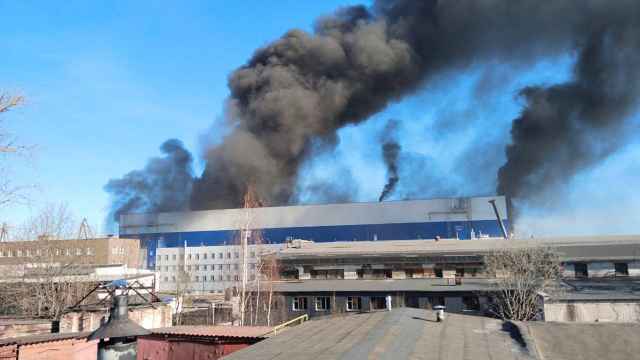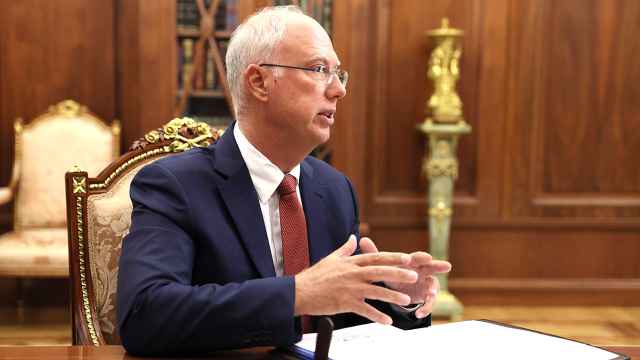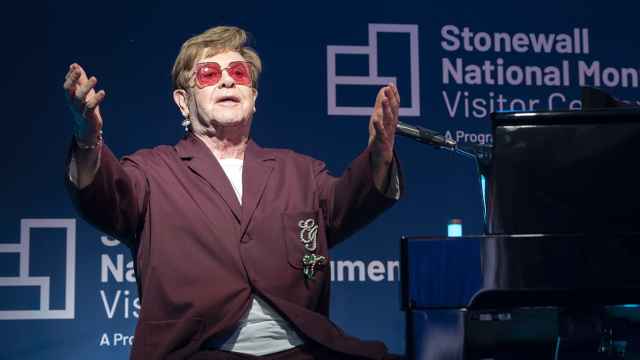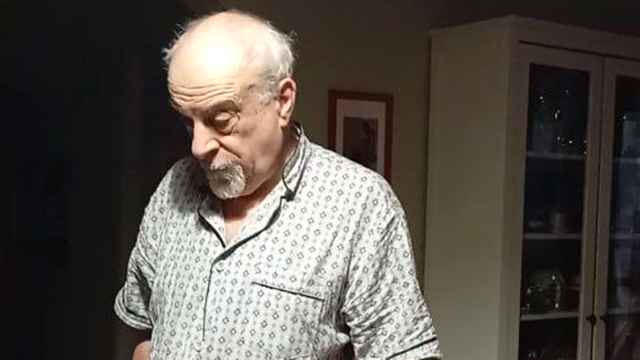| About this blog
|
| Window on Eurasia covers current events in Russia and the nations of the former Soviet Union, with a focus on issues of ethnicity and religion. The issues covered are often not those written about on the front pages of newspapers. Instead, the articles in the Windows series focus on those issues that either have not been much discussed or provide an approach to stories that have been. Frequent topics include civil rights, radicalism, Russian Islam, the Russian Orthodox Church, and events in the North Caucasus, among others.
Author Paul Goble is a longtime specialist on ethnic and religious questions in Eurasia. Most recently, he was director of research and publications at the Azerbaijan Diplomatic Academy. He has served in various capacities in the U.S. State Department, the Central Intelligence Agency and the International Broadcasting Bureau as well as at the Voice of America and Radio Free Europe/Radio Liberty and at the Carnegie Endowment for International Peace. He writes frequently on ethnic and religious issues and has edited five volumes on ethnicity and religion in the former Soviet space. |
Moscow has expanded the list of groups that it is targeting in its anti-extremism campaign to include not only Islamists and religious "sectarians," as in the past, but now also football fans, independent trade unions and environmental activists, according to a Moscow expert on the Russian force structures.
In the latest of her series of articles in Yezhednevny Zhurnal on the Russian government's anti-extremist effort, Irina Borogan of Agentura.ru on Wednesday discussed the original list of "extremists" the powers compiled and how that list has grown as the economic crisis in Russia has deepened (Ej.ru/?a=note&id=9185).
On Dec. 16, 2008, she reports, the Russian Procuracy General, the Federal Security Service (FSB) and the Ministry of Internal Affairs (MVD) issued a joint order "on improving work for preventing and interdicting the activity of social and religious groups disseminating ideas of national hostility and religious extremism."
That document, Borogan says, which states that "extremist manifestations have become one of the main factors creating threat to the national security of the Russian Federation," thus represents "guidance for the actions of the force structures." And the list contained therein provides the clearest indication yet of what the authorities define as "extremism."
The first category on the list is "extremism under cover of Islam," a grouping that includes "Muslim communities and preachers not dependent on the Muslim Spiritual Directorates (MSDs)," institutions into which the FSB and MVD have often inserted themselves to control all Muslims.
The idea that any Muslim not part of the MSD-supervised structures was underscored by Yury Kokov, the head of the MVD Department for the Prevention of Extremism, who said at the time of the Nalchik violence in October 2005 that young Muslims who refused to subordinate themselves to the MSD there had thereby "transformed themselves" into anti-Moscow militants.
Next on the list in this document, Borogan continues, are "followers of pagan cults, which are already prohibited as extremist for their use of the swastika and 'a number of other [religious] organizations.'" But she says, the Expert Council for Conducting State Religious Expertise at the Ministry of Justice seems set to broaden this category significantly.
Headed by self-described "sektoved" Aleksandr Dvorkin, this group seems inclined to treat as extremist almost all religious groups not subordinate to the MSDs or to the Moscow Patriarchate of the Russian Orthodox Church. Among the "totalitarian sects" Dvorkin has already pointed to are the Scientologists, Jehovah's Witnesses, Pentecostals and Mormons.
According to Borogan, the MVD "at present, does not have any opinion" on this, given "how difficult it is to find evidence of a crime" in normal course of religious activities. But she says, "The FSB, on the contrary, is trying … to interfere in the activity" of religious groups in order to prevent them from emerging as "terrorist" threats.
The FSB, she says, has been behind the government's efforts to ban the works of Turkish theologian Said Nursi as "extremist," not so much because "the doctrine of the sufi theologian agitates the leadership of the special services" but rather because the FSB fears "the growing influence" of Turkish activist Fetulla Gulen in the republics of Tatarstan and Bashkortostan.
Next on the December 2008 list, Borogan notes, are "participants in informal youth groups," a category that would seem far from politics but one the powers that be are increasingly focused on. And following that are "opposition parties and movements," a category that will not surprise anyone familiar with Russian government attitudes.
In addition to this list, the order adopted at the end of last year calls for the monitoring of the Internet and "the neutralization and unmasking of groups whose members are inclined toward extremism," a definition so elastic that the siloviki can go after any group where any member of which can be deemed to be "inclined" to extremism.
Borogan reports that "already this spring, it became obvious that the siloviki intend to broaden the list" of extremist groups enumerated in the December 2008 order. On April 15, Alexei Sedov, the FSB official responsible for the defense of the constitutional order and the struggle with terrorism, made a presentation to the Social Chamber.
At that time, he said,"It is necessary to consider the consequences of the world financial crisis as a catalyst of the possible activation of terrorist activity and the growth of extremist manifestations, including the use of force by various types of 'disagreeing' extra-systemic opposition and among young people and students."
From that, it is entirely understandable that the siloviki are now focusing on independent trade unions lest they launch a wave of strikes and warning the leaders of such groups that they risk being charged with extremism as Petr Zolotaryev, the head of the VAZ Union, was already in April.
But what is perhaps most disturbing, Borogan notes in conclusion, is that the Russian force structures are increasingly prepared to define as extremist social groups far from politics, including people who have lost money in the financial crisis or who want to defend the environment, as being "extremist."
With such an expansionist and elastic definition of the word, the Russian government is putting itself in a position to charge anyone it does not like with extremism, thus violating not only the provisions of the Russian Constitution but also all of the undertakings Moscow has made as a signatory to various European and international rights accords.
A Message from The Moscow Times:
Dear readers,
We are facing unprecedented challenges. Russia's Prosecutor General's Office has designated The Moscow Times as an "undesirable" organization, criminalizing our work and putting our staff at risk of prosecution. This follows our earlier unjust labeling as a "foreign agent."
These actions are direct attempts to silence independent journalism in Russia. The authorities claim our work "discredits the decisions of the Russian leadership." We see things differently: we strive to provide accurate, unbiased reporting on Russia.
We, the journalists of The Moscow Times, refuse to be silenced. But to continue our work, we need your help.
Your support, no matter how small, makes a world of difference. If you can, please support us monthly starting from just $2. It's quick to set up, and every contribution makes a significant impact.
By supporting The Moscow Times, you're defending open, independent journalism in the face of repression. Thank you for standing with us.
Remind me later.






